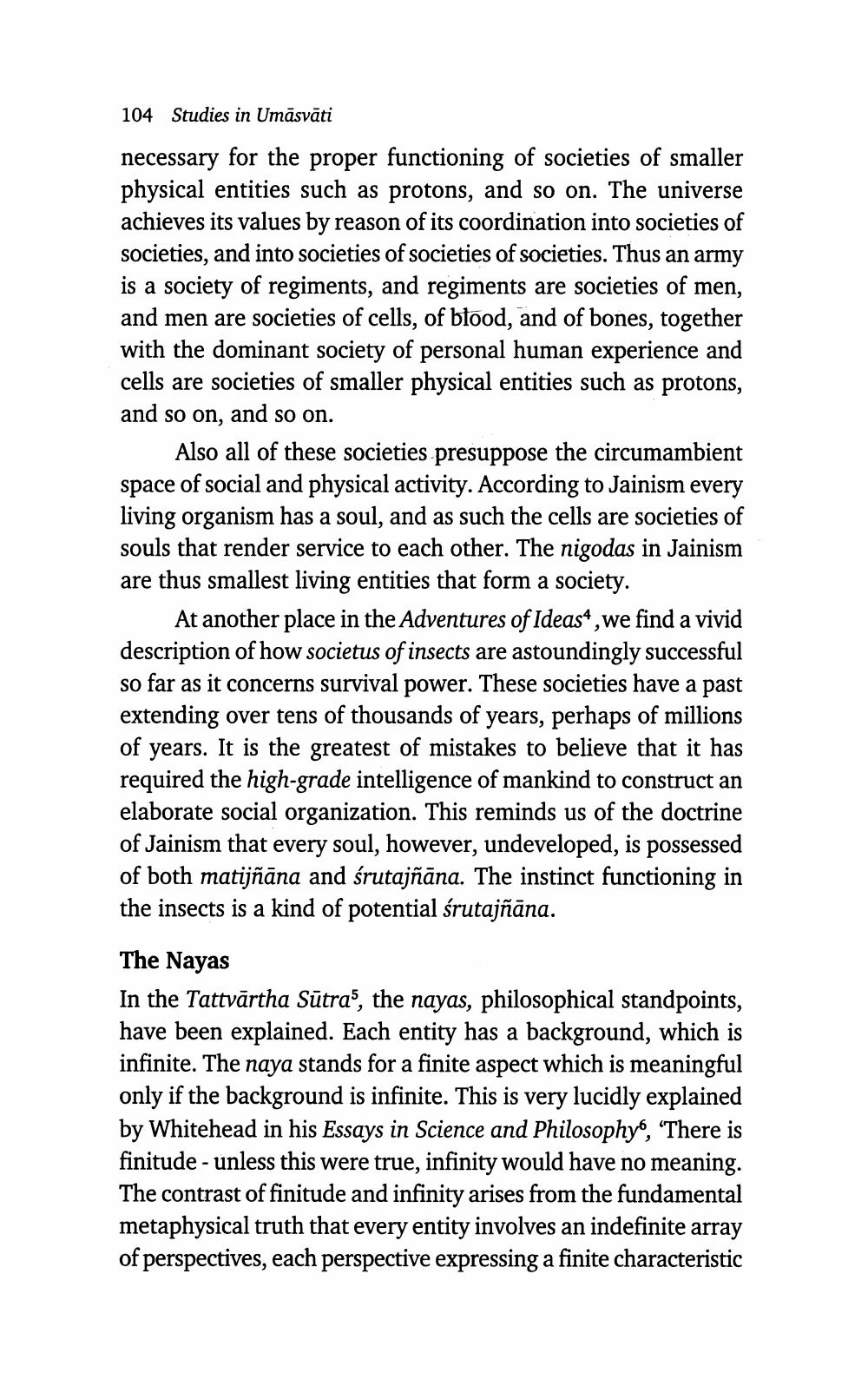________________
104 Studies in Umāsvāti necessary for the proper functioning of societies of smaller physical entities such as protons, and so on. The universe achieves its values by reason of its coordination into societies of societies, and into societies of societies of societies. Thus an army is a society of regiments, and regiments are societies of men, and men are societies of cells, of blood, and of bones, together with the dominant society of personal human experience and cells are societies of smaller physical entities such as protons, and so on, and so on.
Also all of these societies presuppose the circumambient space of social and physical activity. According to Jainism every living organism has a soul, and as such the cells are societies of souls that render service to each other. The nigodas in Jainism are thus smallest living entities that form a society.
At another place in the Adventures of Ideas, we find a vivid description of how societus of insects are astoundingly successful so far as it concerns survival power. These societies have a past extending over tens of thousands of years, perhaps of millions of years. It is the greatest of mistakes to believe that it has required the high-grade intelligence of mankind to construct an elaborate social organization. This reminds us of the doctrine of Jainism that every soul, however, undeveloped, is possessed of both matijñāna and śrutajñāna. The instinct functioning in the insects is a kind of potential śrutajñāna.
The Nayas In the Tattvārtha Sūtra', the nayas, philosophical standpoints, have been explained. Each entity has a background, which is infinite. The naya stands for a finite aspect which is meaningful only if the background is infinite. This is very lucidly explained by Whitehead in his Essays in Science and Philosophy, 'There is finitude - unless this were true, infinity would have no meaning. The contrast of finitude and infinity arises from the fundamental metaphysical truth that every entity involves an indefinite array of perspectives, each perspective expressing a finite characteristic




